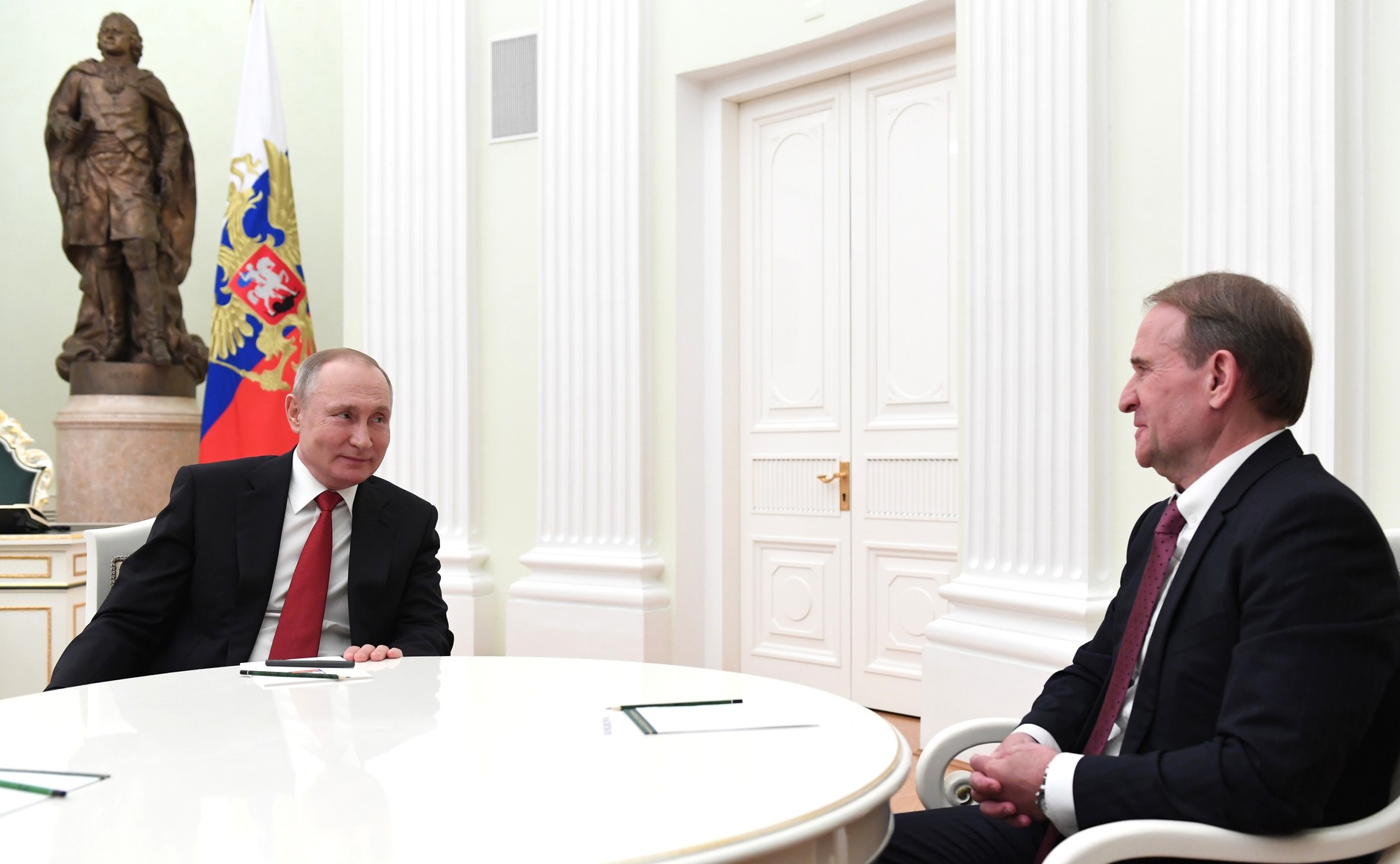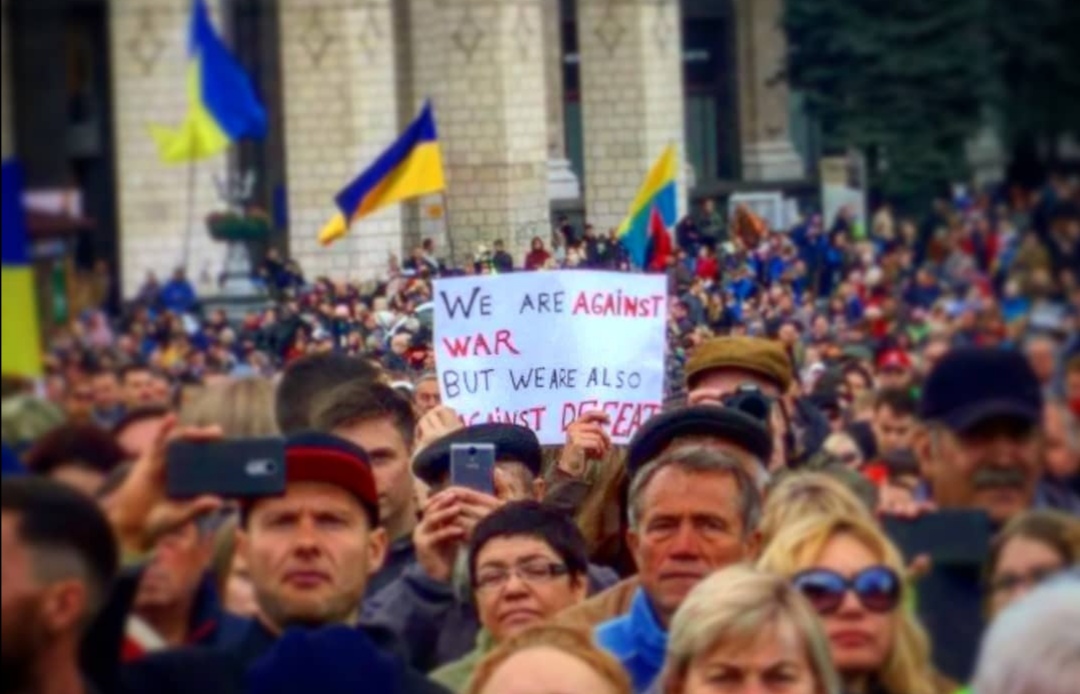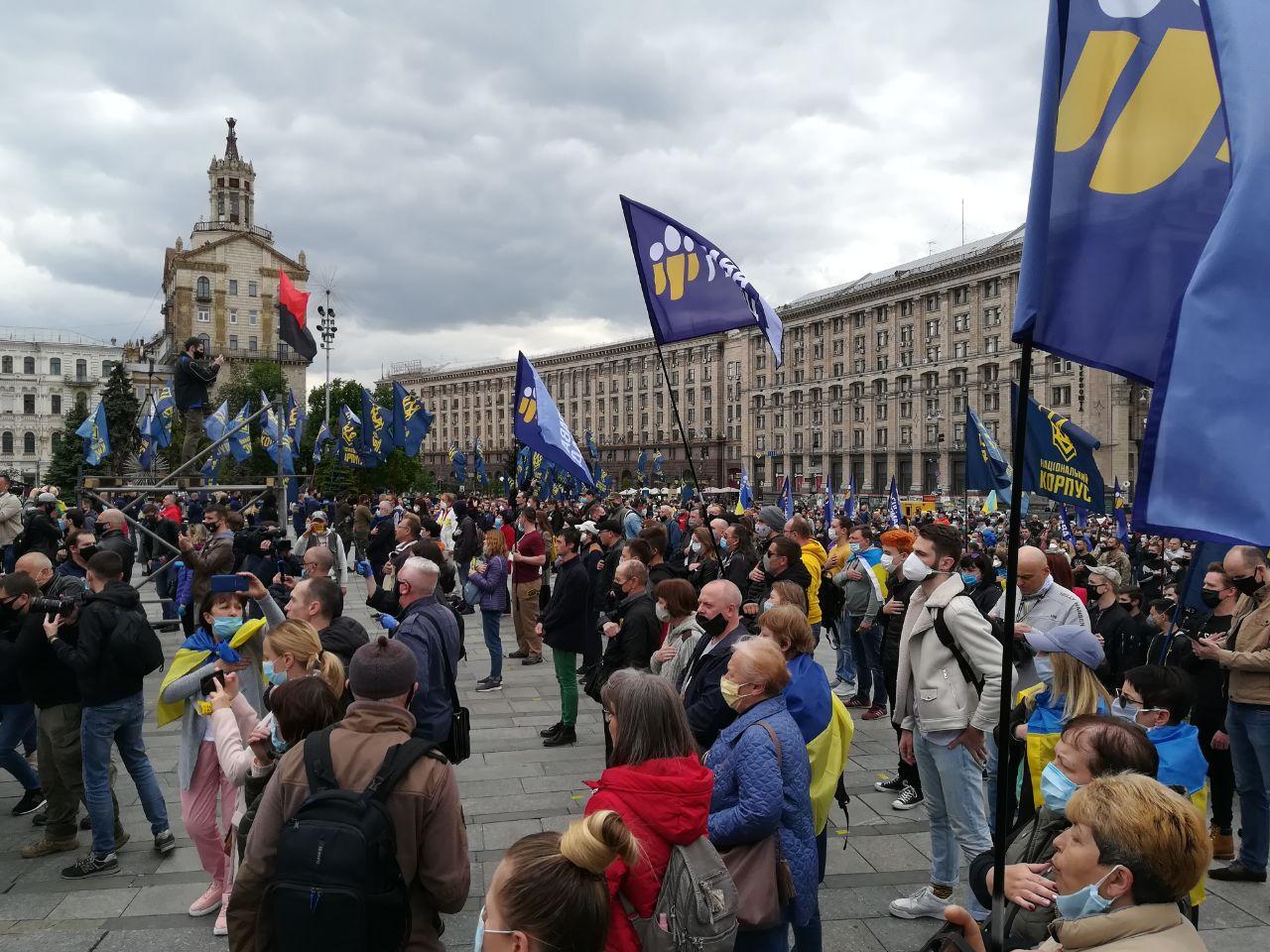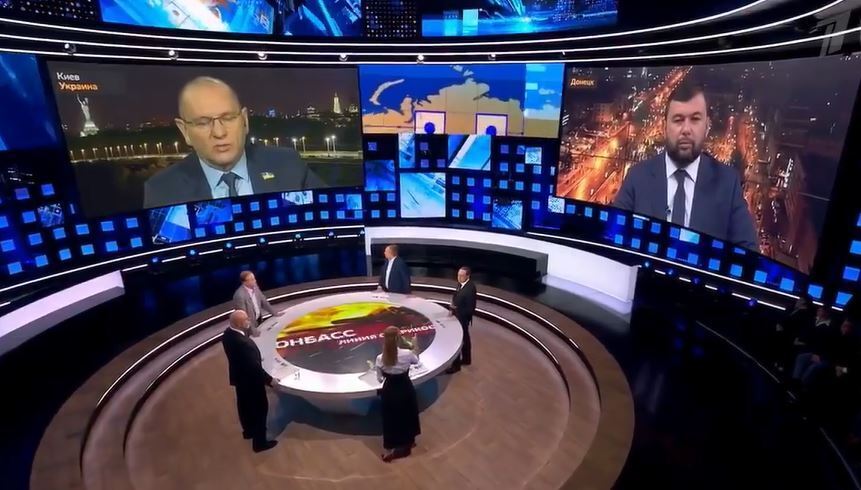On March 11, in Minsk, the Russian and Ukrainian presidents’ representatives, Dmitry Kozak and Andriy Yermak, respectively, agreed to create a new negotiating platform as part of the Minsk negotiating process. The new platform, as proposed, would cast the Ukrainian side and Russia’s proxies in Donetsk-Luhansk as coequal parties to an intra-Ukrainian conflict, while casting Russia as an impartial observer (Dzerkalo Tyzhnia, March 12).
These interrelated moves reflect preparations on both sides for a possibly decisive phase in the Normandy and Minsk processes. Ukrainian President Volodymyr Zelenskyy’s team hopes to hold local elections in the Russian-controlled Donbas by October, as part of Ukraine’s country-wide local elections. Leveraging Kyiv’s impatience against it, the Kremlin has responded with Kozak’s and Medvedchuk’s proposals. Zelenskyy’s team has preliminarily accepted Kozak’s but seems mum to Medvedchuk’s.
Medvedchuk headed a delegation of six parliamentary deputies from his party (Opposition Platform–For Life) to the talks in Moscow, on the same day when the Russian Duma was voting to approve the extension of Putin’s presidential tenure. Medvedchuk had visited Putin in Russia many times personally, but the March 10 visit was the first by a Ukrainian parliamentary delegation in the six years since the start of Russia’s military intervention in Ukraine. The Duma’s plenary session gave this delegation a standing ovation.
Meeting with Putin separately, Medvedchuk presented an enlarged version of a concept he had aired in the wake of Ukraine’s July 2019 parliamentary elections (see EDM, August 5, 2019). Putin blessed it and encouraged Medvedchuk to proceed with it in Ukraine and Europe (TASS, Kremlin.ru, March 10, 11; 112.ua, March 12, 13).
Medvedchuk insists, as does Putin, that the Ukrainian parliament must incorporate the political clauses of the Minsk “accords” into Ukraine’s legislation, to wit: constitutional amendments on decentralization, special status for Donetsk-Luhansk, general amnesty for those involved in “the events” (war-related crimes) there, a special law on local “elections” in the occupied territories, as well as authorizing negotiations between Kyiv and Donetsk-Luhansk toward those goals. The Ukrainian parliament, therefore, needs the “support of our colleagues from Russia’s Duma and the French and German parliaments, persuading our Ukrainian parliamentary deputies that the Minsk accords have no alternative and must be implemented in full through Ukrainian legislation, so as to bring Ukraine closer to peace.”
That would be the agenda of the inter-parliamentary forum, to be designated as the “Normandy parliamentary dimension” (Medvedchuk credits Putin with the paternity of this title). Medvedchuk asked Putin to intercede with German Chancellor Angela Merkel and French President Emmanuel Macron, who could encourage members of their countries’ respective legislatures to join the proposed Normandy inter-parliamentary forum. Putin agreed to intercede, but also used the opportunity to shift the onus to Zelenskyy: “I hope that this project becomes successful with the support of Ukraine’s president.”
The Duma’s chairperson, Vyacheslav Volodin, meanwhile, suggests launching a bilateral Russian-Ukrainian inter-parliamentary dialogue, before the quadripartite forum would materialize. Volodin proposes this bilateral dialogue at the level of parliamentary committees whose competencies are relevant to Ukraine’s enactment of the Minsk “accords” into Ukrainian legislation. According to Volodin, a bilateral working group has been set up during this visit (presumably with members of Medvedchuk’s delegation). Medvedchuk hopes for the inaugural Normandy parliamentary meeting to be held in conjunction with the next summit of the four heads of state and government, tentatively scheduled for April in Berlin.
The Ukrainian leadership seems to protect Medvedchuk from public opprobrium and suspicions of disloyalty. Presidential Office head Andriy Yermak, Rada chair Dmytro Razumkov and parliamentary majority leader David Arakhamia all suggest that there is no case for legal or parliamentary action. They argue that Medvedchuk merely expressed his own opinion and that of his party in Moscow, did not carry any official instructions anyway, and his delegation did not apply to the Ukrainian parliament to cover the costs of its Moscow visit (UNIAN, March 13; Ukrinform, March 11, 14).
The proposed inter-parliamentary forum is designed to:
- increase the pressure on Ukraine, counting on selected German and French parliamentarians to support a political settlement on Russian terms;
- push for those political terms’ implementation without addressing the security issues (troop withdrawal/disarmament/demobilization, border control), all of which are omitted from the proposal’s public presentation;
- accelerate and advance the settlement process from the international diplomatic field into the Ukrainian legislative field—a major breakthrough that could push Ukraine closer to a potentially fatal outcome;
- render Medvedchuk’s pro-Kremlin party acceptable on the international level; and make this party a potential stakeholder in a Ukrainian coalition government that would guarantee this settlement’s implementation.
It seems highly unlikely for Medvedchuk and the Kremlin to be able to enlist any but marginal European parliamentarians into this project.
Trending Now
Viktor Medvedchuk’s party, Opposition Platform–For Life (OP-FL), holds 44 seats in Ukraine’s 450-seat parliament. Despite its limited support, it is the single-largest opposition party, and the only outspoken pro-Russia fraction in the Ukrainian parliament since the July 2019 elections. In November 2019, OP-FL and a small number of like-minded Ukrainian deputies created a cross-party group, titled “inter-parliamentary dialogue for peace, Ukraine-Russia-Germany-France.” They failed to connect with the December 9 Normandy summit in Paris, however, and are now combining with their Russian friends to target the Normandy summit due in April or May in Berlin. Well ahead of that event, Medvedchuk visited the French and German parliaments in January to present this proposal and seek members interested in his inter-parliamentary project. Credible figures will be hard for Medvedchuk to find.
President Volodymyr Zelenskyy, meanwhile, has retreated from his earlier promise to investigate the covert aspects of Medvedchuk’s connections with Moscow. Last August, for example, Zelenskyy had pledged to “investigate how Medvedchuk’s party is financed. There are big questions as to where they get money for their party, their television channels. We know about cash amounts, and [we know] from which country they receive all this. This will be a very loud scandal and it will end very badly [for them]” (Ukrinform, August 31, 2019).
No investigation has been launched, however. Instead, multiple criminal investigations are ongoing against former president Petro Poroshenko—the Zelenskyy team’s distinctive vendetta. Medvedchuk’s status as Putin’s top local ally apparently grants him immunity from Ukrainian legal action, as long as Zelenskyy appeals to Putin to deliver “peace.” Kozak’s recent appointment as Putin’s top representative has raised the Zelenskyy team’s expectations in this regard.
The ruling team is prepared for “situational” (ad hoc) parliamentary cooperation with OP-FL, if and when the presidential party Servant of the People cannot muster sufficient votes for its initiatives. Thus, Zelenskyy was recently able to remove Prosecutor General Ruslan Riaboshapka thanks to OP-FL’s votes for the presidential party’s motion of no confidence (Ukrinform, March 5). Zelenskyy’s and Medvedchuk’s parties have thereby tested a possible model for ad hoc cooperation.
Changing Ukraine’s constitution and legislation as per the Minsk “accords” would force the presidential party into a combination with the same OP-FL in parliament. Servant of the People, with some 250 seats in the 450-seat chamber, lacks the two-thirds majority for constitutional amendments. It might even fall short of a simple majority through defections over such highly contentious issues. Almost 60 Servant of the People deputies have signed a letter of concern (UNIAN, March 14) regarding Ukrainian Presidential Office head Andriy Yermak’s non-transparent March 11 meeting with the Russian presidential representative for Ukraine issues, Dmitry Kozak. The party is subject to fissiparous trends over other issues as well (Ukrainska Pravda, March 18).
Putin has been using Medvedchuk as part of a cat-and-mouse game with Zelenskyy. To boost Medvedchuk’s political rating, Putin had allowed him to mediate prisoner exchanges, repatriating whole groups of Ukrainian captives. Putin then received Medvedchuk with maximum publicity in Russia on the eve of Ukraine’s July 2019 parliamentary elections. Barely two weeks after that, however, Putin granted President Zelenskyy’s wish to replace Medvedchuk with Yermak for negotiating the release and repatriation of Ukrainian captives from Russia. This helped sustain Zelenskyy’s domestic popularity but also propelled Yermak’s own rise as Zelenskyy’s indispensable fixer. For a while, Putin hinted that he might again entrust Medvedchuk with repatriating Ukrainians from Russian captivity; yet Putin seems content with the current arrangement. Putin granted Zelenskyy this favor during their August 7, 2019, telephone conversation, the same one that triggered a series of unilateral concessions from Zelenskyy and Yermak in the Minsk and Normandy processes (see EDM, August 5, September 10, 12, 24, 25, 26, October 3, December 5, 2019). Drifting from one meeting to the next in those processes, with no clear policy and ever-changing ideas, Zelenskyy’s team seems to have one issue firmly in focus: the humanitarian issue of prisoner exchanges, no substitute for strategy.
The Kremlin continues using Medvedchuk in several roles in this game:
- First, as a long-time proponent of restructuring Ukraine along federal lines with a weak central government;
- second, to lead the Russophile parliamentary opposition, potentially a reserve of votes for the governing party in “situational” deals if needed to pass legislation (see above);
- third, to oversee the media holding that has consolidated Ukraine’s pro-Russia electorate around the OP-FL party.
Medvedchuk is wielding certain scripted talking points to dismiss Zelenskyy’s striving for “peace” with Russia and to pressure him into more concessions. Every time Ukrainian soldiers are killed at the front, Medvedchuk adduces this as evidence that Zelenskyy does not do enough for peace. And when the president raises expectations of progress toward an “end to the war,” Medvedchuk counters that this will remain out of reach unless Ukraine fulfills the political clauses of the Minsk “accords.”
Putin has dealt with five Ukrainian presidents in 20 years, but Medvedchuk is the only Ukrainian politician to have enjoyed Putin’s full confidence this entire time and to have repaid this privilege with seemingly unconditional loyalty. Each of them is, however, an asset of limited value to the other. Given Putin’s low popularity rating in Ukraine, his image transfer to Medvedchuk is confined to core Russophile groups—the political field of the OP-FL party. And given Medvedchuk’s quasi-permanent status as an opposition politician, without an institutional power base or access to state resources, he capitalizes on the well-advertised connection with Putin, leveraging this as a power broker with Ukrainian presidents. At this point, Zelenskyy must choose either “peace” on Russian terms with the help of Medvedchuk’s votes in parliament or, alternatively, make good on his promise to initiate the revision of the unimplementable Minsk “accords.”
Read More:
- Portnikov: Putin’s coalition now rules Ukraine
- Ukraine’s government has ventured into dangerous waters, but it’s not too late to set the boat on course – Marynovych
- Shady agreements legitimizing Russia’s puppet “republics” likely signed in Minsk
- Russia’s policies toward Ukraine remain unchanged month after Kremlin’s “gray cardinal” replaced
- Ukraine’s new government: more oligarchic, more pro-Russian
- Servants of the People or “Little Russian valets”. Zelenskyy party on course for the “Russian world”
- Fears of a pro-Russian turn as Yermak appointed new head of Ukrainian President’s Office
- Putin’s Number One man in Ukraine sues media to hide Soviet past





